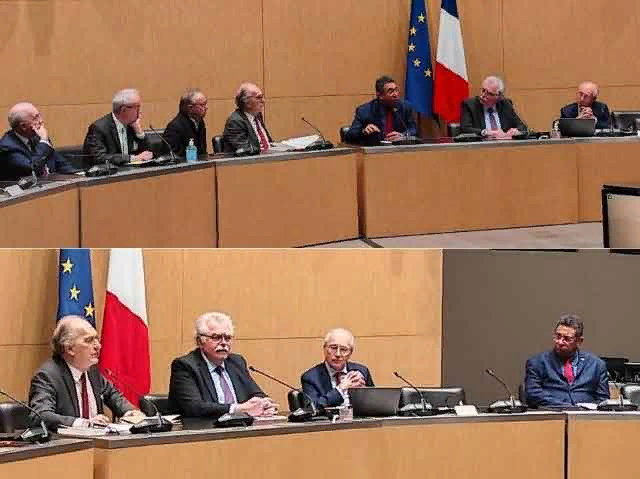The France-Cuba Friendship Group of the National Assembly and the Institute of Higher Studies on Latin America (Iheal) organized this Monday in Paris a colloquium to promote French business ties with the island.
Parliamentarians, experts in international relations, French businessmen – including some who operate in Cuba -, cooperation and solidarity associations, former government officials and the French Development Agency (AFD) attended the forum, where Cuban ambassador Otto Vaillant participated.
The various interventions analyzed the potential of the Antillean nation as an economic destination and emphasized the obstacle that the US blockade and its extraterritorial reach represent for the normal development of ties.
The president of the group, André Chassaigne, commented that the colloquium was framed in parliamentary diplomacy and in the concern as a Friendship Group for the problems facing Cuba.
According to Chassaigne, it is about discussing business relations from two dimensions: the emotional one, due to their love for Cuba, and the convergence of interests between both countries.
The deputy and communist leader highlighted the debates beyond the condemnation of the US blockade, to focus on the actions to follow to enhance the business presence of France in the largest island of the Antilles.
For his part, Matthias Fekl, former Secretary of State for Foreign Trade and the promotion of Tourism (2014-2017), pointed out that despite Washington’s siege, it is possible to develop economic activities in Cuba, which French companies have long demonstrated in the tourism, agriculture, services and other sectors.
Ambassador Vaillant insisted on the consequences for Cuba of Washington’s hostility and its intensification during the administration of Donald Trump (2017-2021), a position maintained by his successor in the White House, Joseph Biden.
Likewise, he thanked the support of French companies and associations of solidarity and cooperation, and supported the criterion expressed repeatedly in the colloquium that the European Union should not allow the extraterritoriality of US laws that affect the interests of its citizens and entities.
In the conclusions of the meeting, the president of the Iheal Strategic Guidance Council, Stéphane Witkowski, celebrated the discussions, and mentioned the importance of supporting Cuba in the difficult conditions it faces.
Witkowski also referred to the impact on French and European interests of the blockade and its extraterritorial component, manifested through laws such as Helms-Burton, which he considered a matter of sovereignty.


